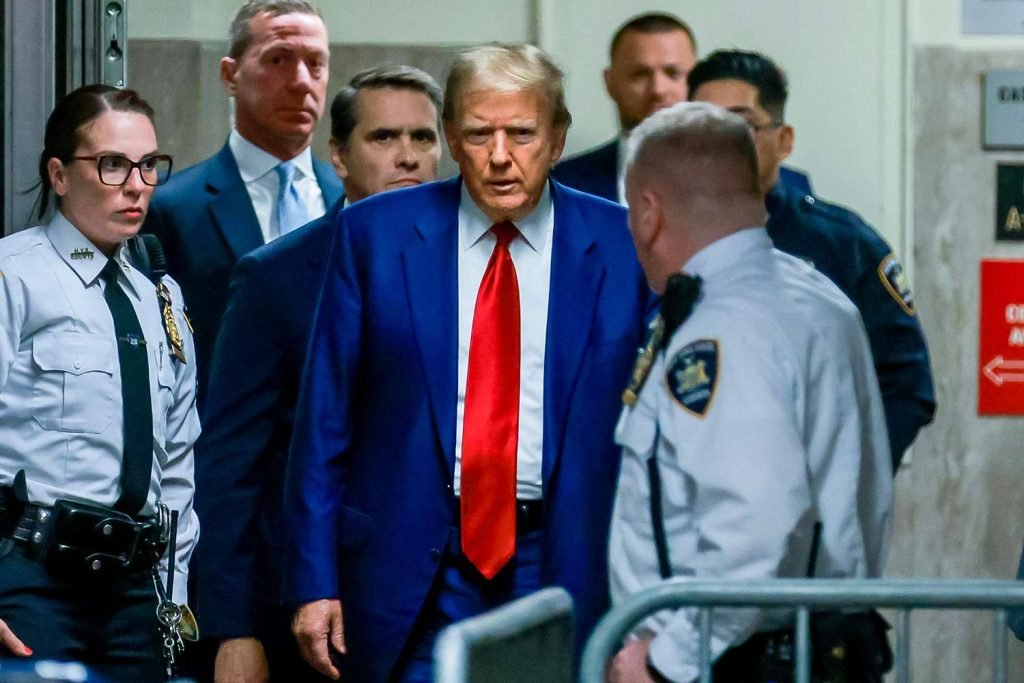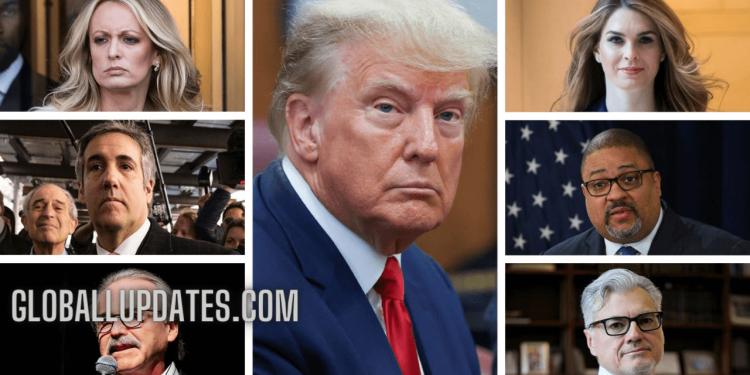Donald Trump’s legal entanglements have reached a critical juncture as his first criminal trial gets underway, with jury selection commencing on Monday. This follows his appearances at two separate civil trials in New York, marking a significant escalation in the severity of legal challenges he faces.
The Allegations
At the heart of the criminal trial are accusations related to hush money allegedly paid to porn star Stormy Daniels prior to the 2016 Presidential election. Trump, aged 77, faces 34 counts of fraud specifically tied to how these payments were accounted for within his financial records. Despite vehemently denying any wrongdoing and pleading not guilty, the implications are profound, with the case poised to explore the boundaries of electoral law and personal misconduct.
Legal Implications
The charges primarily involve falsifying business records, where it’s alleged that Trump improperly recorded the reimbursement to his former lawyer Michael Cohen as legal expenses. This section of the trial will likely delve into the minutiae of legal record-keeping and the ethical obligations of candidates during election campaigns.
Jury Selection Process
Selecting a jury for such a high-profile case is fraught with challenges. Prospective jurors will be vetted intensively, with questions designed to gauge their impartiality in a trial that has attracted immense media attention. The process itself could extend over several weeks, underscoring the complexity of ensuring a fair trial.
The Parties Involved
A slew of prominent figures will feature prominently throughout the trial.
- Jury Selection Begins for Trump’s Hush Money Case
- Turbulence in Trump’s Digital Realm: The Legal Battle Over Truth Social
Donald Trump
The former President, known for his brash style and polarizing politics, finds himself in an unfamiliar position where his personal attendance in court is not just expected but mandated. Unlike previous civil trials, his physical presence could have a direct impact on the jury’s perception and the overall trial dynamics.
Michael Cohen
Cohen, Trump’s former attorney and fixer, is central to the prosecution’s case. His testimony, expected to be both explosive and contentious, will play a critical role in shaping the narrative of the trial.
Justice Juan Merchan
Overseeing the proceedings is Justice Juan Merchan, a seasoned judge with significant experience but facing his highest-profile case to date. His management of the courtroom and decisions on procedural matters will be pivotal.
Manhattan DA’s Office
Led by Alvin Bragg, the Manhattan District Attorney’s office has the daunting task of presenting a cogent case against a figure as high-profile as Donald Trump. Their strategy and conduct will be under intense scrutiny.

Court Procedures and Rules
The trial is expected to be a procedural behemoth, governed by complex legal rules and the overarching need for transparency and fairness.
Expected Timeline
Scheduled to last eight weeks, the trial will include days dedicated to specific testimonies and procedural arguments. The non-traditional schedule, including breaks for holidays and possibly other significant events, reflects the unique nature of this trial.
Specific Court Dates
Key dates include the start of jury selection, expected days of major testimonies, and the final arguments. These will be critical for public and media monitoring.
Impact on Trump’s 2024 Campaign
The trial casts a long shadow over Trump’s 2024 Presidential campaign. Its proceedings could distract from his campaign efforts, alter his public image, and influence voter perception in the lead-up to the election.
Public and Media Reaction
Public and media reactions to the trial will likely be mixed, with intense coverage and scrutiny both potentially swaying public opinion.
Media Coverage Restrictions
Given the high stakes, the court’s decision to limit media coverage inside the courtroom could be a significant factor in controlling the trial’s narrative.
Conclusion
This trial is not just about legal outcomes but also about the integrity of public institutions and the accountability of high-profile individuals in American politics. Its consequences will resonate far beyond the courtroom, potentially altering the political landscape in 2024.














































